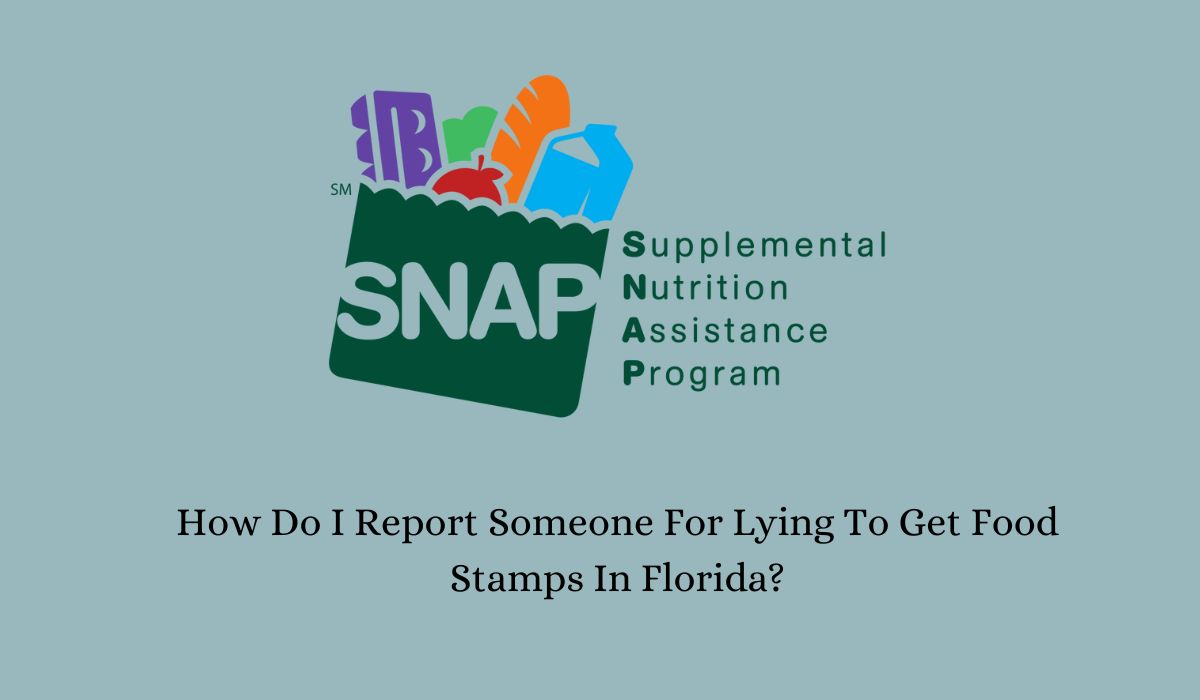Food stamp fraud is a serious issue that undermines the integrity of a program designed to assist those in genuine need.
When someone lies to obtain food stamps, they are not only committing a crime but also diverting resources away from families and individuals who truly depend on this assistance.
If you suspect someone of committing food stamp fraud, it’s important to know how to report it.
What is Food Stamp Fraud?
Before reporting, it’s crucial to understand what constitutes food stamp fraud. This can include:
- Providing false information or withholding information to get benefits.
- Trading or selling food stamps for cash or non-food items.
- Using someone else’s food stamps without their permission.
Steps to Report Food Stamp Fraud in Florida
1. Gather Information
Before making a report, gather as much information as possible about the suspected fraud. This includes the individual’s name, address, the type of fraud you suspect, and any other relevant details. Remember, the more information you provide, the easier it will be for authorities to investigate.
2. Contact the Florida Department of Children and Families (DCF)
The DCF is responsible for administering the SNAP program in Florida. They have a dedicated hotline and online portal for reporting fraud.
- Phone: You can call the Florida DCF fraud hotline at 1-866-762-2237. This line is available 24/7, and you can choose to remain anonymous.
- Online: Visit the Florida DCF website and navigate to the public assistance fraud reporting page. Here, you can fill out a form with the details of your suspicion.
3. Provide Specific Details
When reporting, be as specific as possible. Include dates, locations, and descriptions of the fraudulent activity. If you have any documentation or evidence, mention this in your report.
4. Anonymity and Confidentiality
If you prefer to stay anonymous, you can do so. The DCF ensures that all reports are confidential, and your identity will be protected.
5. Follow-Up
After reporting, you may be contacted for further information. While you may not be informed about the outcome of the investigation due to privacy laws, rest assured that all reports are taken seriously and investigated thoroughly.
What Happens After a Report is Made?
Once a report is filed, the DCF will review the information and determine if an investigation is warranted. Investigations are thorough and may involve reviewing the individual’s SNAP application, income verification, and other relevant documents. If fraud is confirmed, consequences can range from disqualification from the program to legal action.
The Importance of Reporting Accurately
While it’s important to report suspected fraud, it’s equally important to ensure that your report is accurate and based on factual information. False accusations can have serious consequences for both the accused and the reporter.
Conclusion
Food stamp fraud not only harms the integrity of vital welfare programs but also the taxpayers and genuine beneficiaries. Reporting suspected fraud is a civic responsibility that helps ensure these programs continue to serve those in genuine need.
By following the correct procedures and acting responsibly, you can play a part in maintaining the integrity of the food stamp program. Remember, it’s always better to report suspected fraud than to overlook potential abuse of the system.
